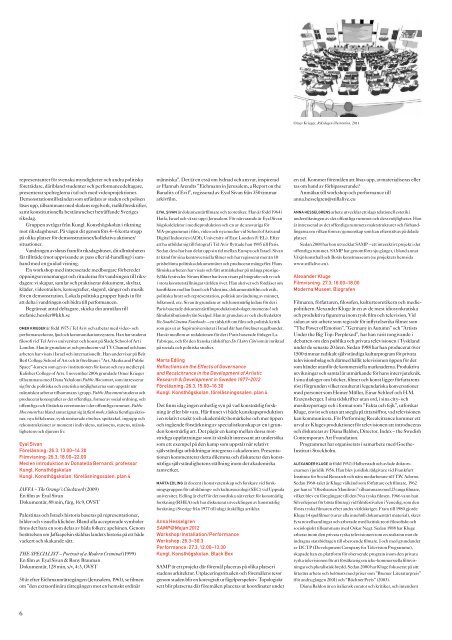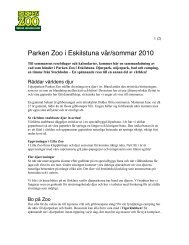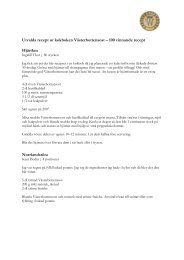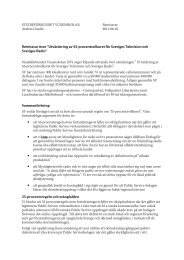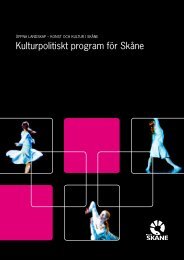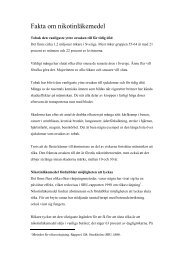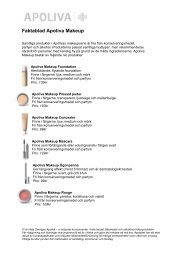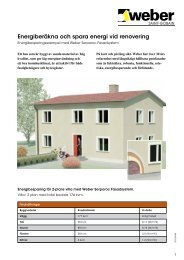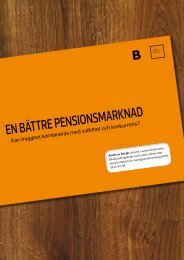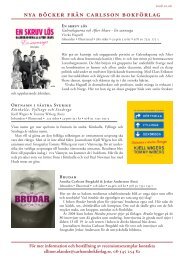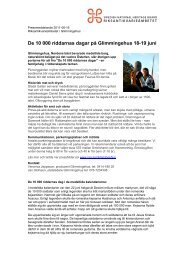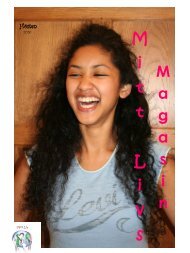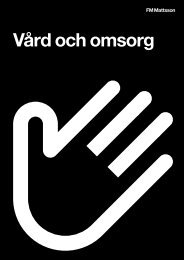Performing Recalcitrance 24–30 mars/March 2012 Kungl ...
Performing Recalcitrance 24–30 mars/March 2012 Kungl ...
Performing Recalcitrance 24–30 mars/March 2012 Kungl ...
You also want an ePaper? Increase the reach of your titles
YUMPU automatically turns print PDFs into web optimized ePapers that Google loves.
epresentanter för svenska myndigheter och andra politiska<br />
företrädare, däribland studenter och performancedeltagare,<br />
presenterar spelreglerna i tal och med videoprojektioner.<br />
Demonstrationstillstånden som utfärdats av staden och polisen<br />
läses upp, tillsammans med skolans regelverk, trafikföreskrifter,<br />
samt konstitutionella bestämmelser beträffande Sveriges<br />
riksdag.<br />
Gruppen avtågar från <strong>Kungl</strong>. Konsthögskolan i riktning<br />
mot riksdagshuset. På vägen dit genomförs 4–6 korta stopp<br />
på olika platser för demonstrationer/kollektiva aktioner/<br />
situationer.<br />
Vandringen avslutas framför riksdagshuset, dit allmänheten<br />
får tillträde (mot uppvisande av pass eller id-handling) i sam-<br />
band med en guidad visning.<br />
En workshop med intresserade medborgare förbereder<br />
öppningsevenemanget och ritualerna för vandringen till riks-<br />
dagen: vi skapar, samlar och praktiserar dokument, skyltar,<br />
kläder, videotrailers, koreografier, slagord, sånger och musik<br />
för en demonstration. Lokala politiska grupper bjuds in för<br />
att delta i vandringen och bidra till performancen.<br />
Begränsat antal deltagare, skicka din anmälan till<br />
stefanie.hessler@kkh.se<br />
omer Krieger är född 1975 i Tel Aviv och arbetar med video- och<br />
performancekonst, ljud och kommunikationssystem. Han har studerat<br />
filosofi vid Tel Avivs universitet och konst på Slade School of Art i<br />
London. Han är grundare av och producent vid TV Channel och hans<br />
arbeten har visats i Israel och internationellt. Han undervisar på Beit<br />
Berl College School of Art och är föreläsare i ”Art, Media and Public<br />
Space”-kursen som ges av institutionen för konst och nya medier på<br />
Kalisher College of Arts. I november 2006 grundade Omer Krieger<br />
tillsammans med Dana Yahalomi Public Movement, som intresserar<br />
sig för de politiska och estetiska möjligheterna som uppstår när<br />
människor arbetar tillsammans i grupp. Public Movement studerar och<br />
producerar koreografier av det offentliga, former av social ordning, och<br />
offentliga och förtäckta ceremonier i det offentliga rummet. Public<br />
Movement har bland annat ägnat sig åt flash mobs, tänkta fientliga aktio-<br />
ner, nya folkdanser, synkroniserade rörelser, spektakel, ingrepp och<br />
rekonstruktioner av moment i individens, nationens, statens, mänsk-<br />
lighetens och djurens liv.<br />
eyal Sivan<br />
föreläsning: 26.3, 13.00–14.30<br />
filmvisning: 26.3, 18.00–22.00<br />
med en introduktion av Donatella Bernardi, professor<br />
<strong>Kungl</strong>. Konsthögskolan<br />
<strong>Kungl</strong>. Konsthögskolan, föreläsningssalen, plan 4<br />
JAFFA – The Orange’s Clockwork (2009)<br />
En film av Eyal Sivan<br />
Dokumentär, 88 min, färg, 16:9, OVST<br />
Palestinas och Israels historia baseras på representationer,<br />
bilder och visuella klichéer. Bland alla accepterade symboler<br />
finns det bara en som delas av båda folken: apelsinen. Genom<br />
berättelsen om Jaffaapelsin skildras landets historia på ett både<br />
vackert och skakande sätt.<br />
THE SPECIALIST – Portrait of a Modern Criminal (1999)<br />
En film av Eyal Sivan & Rony Brauman<br />
Dokumentär, 128 min, s/v, 4:3, OVST<br />
50 år efter Eichmannrättegången (Jerusalem, 1961), se filmen<br />
om ”den extraordinära rättegången mot en hemskt ordinär<br />
människa”. Det är en essä om lydnad och ansvar, inspirerad<br />
av Hannah Arendts ”Eichmann in Jerusalem, a Report on the<br />
Banality of Evil”, regisserad av Eyal Sivan från 350 timmar<br />
arkivfilm.<br />
eyal SiVan är dokumentärfilmare och teoretiker. Han är född 1964 i<br />
Haifa, Israel och växte upp i Jerusalem. För närvarande är Eyal Sivan<br />
högskolelektor i medieproduktion och en av de ansvariga för<br />
MA-programmet i film, video och nya medier vid School of Arts and<br />
Digital Industries (ADI), University of East London (UEL). Efter<br />
att ha utbildat sig till fotograf i Tel Aviv flyttade han 1985 till Paris.<br />
Sedan dess har han delat upp sin tid mellan Europa och Israel. Sivan<br />
är känd för sina kontroversiella filmer och har regisserat mer än 10<br />
prisbelönta politiska dokumentärer och producerat många fler. Hans<br />
filmiska arbeten har visats och fått utmärkelser på många prestigefyllda<br />
festivaler. Sivans filmer har även visats på biografer och tv och<br />
i stora konstutställningar världen över. Han skriver och föreläser om<br />
konflikten mellan Israel och Palestina, dokumentärfilm och etik,<br />
politiska brott och representation, politisk användning av minnet,<br />
folkmord, etc. Sivan är grundare av och konstnärlig ledare för det i<br />
Paris baserade dokumentärfilmproduktionsbolaget momento! och<br />
filmdistributionsbyrån Scalpel. Han är grundare av och chefredaktör<br />
för South Cinema Notebooks – en tidskrift om film och politisk kritik<br />
som ges ut av Sapiruniversitetet i Israel där han föreläser regelbundet.<br />
Han är medlem av redaktionen för det i Paris baserade förlaget La<br />
Fabrique, och för den franska tidskriften De l’Autre Côté som är inriktad<br />
på sociala och politiska studier.<br />
marta edling<br />
reflections on the effects of governance<br />
and recalcitrance in the Development of artistic<br />
research & Development in Sweden 1977–<strong>2012</strong><br />
föreläsning: 26.3, 15.00–16.30<br />
<strong>Kungl</strong>. Konsthögskolan, föreläsningssalen, plan 4<br />
Det finns idag ingen enhetlig syn på vad konstnärlig forskning<br />
är eller bör vara. Här finner vi både kunskapsproduktion<br />
i en relativt exakt (och akademisk) bemärkelse och mer öppen<br />
och ingående förstärkning av specialistkunskap av en i grun-<br />
den konstnärlig art. Det pågår en kamp mellan dessa mot-<br />
stridiga uppfattningar som är särskilt intressant att undersöka<br />
som ett exempel på den kamp som uppstår när relativt<br />
självständiga utbildningar integreras i akademien. Presentationen<br />
kommenterar detta dilemma och diskuterar den konst-<br />
närliga självständighetens ställning inom det akademiska<br />
ramverket.<br />
marta eDling är docent i konstvetenskap och forskare vid forskningsgruppen<br />
för utbildnings- och kultursociologi (SEC) vid Uppsala<br />
universitet. Edling är chef för det nordiska nätverket för konstnärlig<br />
forskning (RHEA) och har diskuterat utvecklingen av konstnärlig<br />
forskning i Sverige från 1977 till idag i åtskilliga artiklar.<br />
anna Hesselgren<br />
SamP@mejan <strong>2012</strong><br />
Workshop/installation/Performance<br />
Workshop: 26.3–30.3<br />
Performance: 27.3, 12.00–13.30<br />
<strong>Kungl</strong>. Konsthögskolan, Black Box<br />
SAMP är ett projekt där föremål placeras på olika platser i<br />
stadens arkitektur. Utplaceringsritualen och föremålens resor<br />
genom staden blir en koreografi ur fågelperspektiv. Topologiskt<br />
sett blir platserna där föremålen placeras ut koordinater under<br />
Omer Krieger, Riksdagen illustration, 2011<br />
en tid. Kommer föremålen att lösas upp, avmaterialiseras eller<br />
tas om hand av förbipasserande?<br />
Anmälan till workshop och performance till<br />
anna.hesselgren@stillalive.eu<br />
anna HeSSelgrenS arbete utvecklar ett slags relationell estetik i<br />
undersökningen av det offentliga rummet och dess möjligheter. Hon<br />
är intresserad av det offentliga rummets maktstrukturer och förhand-<br />
lingarna om vilken form av gemenskap som kan eftersträvas på delade<br />
platser.<br />
Sedan 2008 har hon utvecklat SAMP – ett interaktivt projekt i det<br />
offentliga rummet. SAMP har genomförts sju gånger, i bland annat<br />
Växjö konsthall och Borås konstmuseum (se projektets hemsida<br />
www.stillalive.eu).<br />
alexander Kluge<br />
filmvisning: 27.3, 16.00–18.00<br />
moderna museet, Biografen<br />
Filmaren, författaren, filosofen, kulturteoretikern och medie-<br />
politikern Alexander Kluge är en av de mest idiosynkratiska<br />
och produktiva figurerna inom tysk film och television. Vid<br />
sidan av sitt arbete som regissör för inflytelserika filmer som<br />
”The Power of Emotion”, ”Germany in Autumn” och ”Artists<br />
Under the Big Top: Perplexed”, har han varit tongivande i<br />
debatten om den publika och privata televisionen i Tyskland<br />
under de senaste 20 åren. Sedan 1988 har han producerat över<br />
1500 timmar radikalt självständiga kulturprogram för privata<br />
televisionsbolag och därmed hållit televisionen öppen för det<br />
som händer utanför de kommersiella marknaderna. Produktiva<br />
utvikningar och samtal är utmärkande för hans intervjuteknik.<br />
I sina dialoger om böcker, filmer och konst ligger författarens<br />
röst i förgrunden vilket resulterat i legendariska konversationer<br />
med personer som Heiner Müller, Einar Schleef och H.M.<br />
Enzensberger. I sina tidskrifter utan ord, i sina city- och<br />
musikreportage och i format som ”Fakta och fejk”, utforskar<br />
Kluge, envist och utan att snegla på tittarsiffror, vad televisionen<br />
kan kommunicera. För <strong>Performing</strong> <strong>Recalcitrance</strong> kommer ett<br />
urval av Kluges produktioner för televisionen att introduceras<br />
och diskuteras av Diana Baldon, Director, Index – the Swedish<br />
Contemporary Art Foundation.<br />
Programmet har organiserats i samarbete med Goethe-<br />
Institut i Stockholm.<br />
alexanDer Kluge är född 1932 i Halberstadt och avlade doktors-<br />
examen i juridik 1956. Han blev juridisk rådgivare vid Frankfurt<br />
Institute for Social Research och nära medarbetare till T.W. Adorno.<br />
Sedan 1960-talet är Kluge välkänd som författare och filmare. 1962<br />
gav han ut ”Oberhausen Manifesto” tillsammans med 25 unga filmare,<br />
vilket blev en föregångare till den Nya tyska filmen. 1966 vann han<br />
Silverlejonet för bästa filmregi vid filmfestivalen i Venedig, som den<br />
första tyska filmaren efter andra världskriget. Fram till 1980 gjorde<br />
Kluge 14 spelfilmer (varav alla innehöll dokumentärt material), skrev<br />
fyra novellsamlingar och arbetade med kritisk teori filosofiskt och<br />
sociologiskt tillsammans med Oskar Negt. Sedan 1988 har Kluge<br />
arbetat inom den privata tyska televisionen som en reaktion mot de<br />
indragna statsbidragen till oberoende filmare. I och med grundandet<br />
av DCTP (Development Company for Television Programme),<br />
skapade han en plattform för oberoende program inom den privata<br />
tyska televisionen för att försäkra sig om icke-kommersiella filmvisningar<br />
och pluralistisk bredd. Sedan 2000 har Kluge fokuserat på sitt<br />
litterära arbete och belönats med priser som ”Bremer Literaturpreis”<br />
(för andra gången 2001) och ”Büchner Preis” (2003).<br />
Diana Baldon är en italiensk curator och kritiker, och intendent<br />
Martha Edling<br />
Foto/Photo: Claes Reichmann<br />
omer Krieger<br />
march to the Parliament (Stockholm, <strong>2012</strong>)<br />
Workshop: 26.3–29.3, iaspis<br />
collective action: 29.3 or 30.3<br />
Start from the royal institute of art, walk to riksdagen<br />
(the Swedish Parliament)<br />
Meeting the public inside the entrance of the Royal Institute<br />
of Art, a group of people will be formed. Swedish Law will be<br />
read seductively. Attractive uniformed representatives of Swe-<br />
dish Authorities and other political agents, including students<br />
and other performers will present the rules of the game to the<br />
participants, in speech and video projection. The city/police<br />
permissions for the action will be read, academy codex, traffic<br />
laws, constitutional clauses regarding the parliament in Sweden.<br />
The group will leave the academy building and start walking<br />
to the parliament. On the way 4–6 short stops will be conducted<br />
in several points on the way, for different demonstrations/collective<br />
actions/situations.<br />
The walk will end in front of Riksdagen/The Swedish<br />
Parliament, to which the public’s access will be granted (with<br />
passports/ID cards) as part of a guided tour.<br />
The workshop with interested citizens will prepare for the<br />
opening event as well as the rituals for the course of the march<br />
to the parliament: making, collecting and practicing documents,<br />
signs, clothes, video trailers, choreographies, slogans, songs and<br />
music for a marching demonstration. Local political groups will<br />
be invited to join the walk and contribute to the performance.<br />
Limited number of participants, please sign up at<br />
stefanie.hessler@kkh.se<br />
omer Krieger was born in Tel Aviv in 1975 and works in video and<br />
performance art, sound, and communication systems. He studied<br />
philosophy at Tel Aviv University and art at the Slade School of Art<br />
in London. He is the founder-producer of TV Channel and his works<br />
are shown in Israel and worldwide. He teaches at the Beit Berl College<br />
School of Art and is a lecturer in the ”Art, Media and Public Space”<br />
course at the Kalisher College of Art department of art and new media.<br />
In November 2006, Omer Krieger founded Public Movement together<br />
with Dana Yahalomi. The movement is interested in the political and<br />
esthetic possibilities embodied in a group of people working together.<br />
Public Movement studies and produces choreographies of the public,<br />
forms of social order, and public and covert ceremonies in a public space.<br />
Some of the movement’s activities in the past and present include flash<br />
mobs, imaginary hostile actions, new folkdances, synchronized movement,<br />
spectacles, invention and reconstruction of moments in the life of<br />
the individual, the nation, the state, humanity, and the animal kingdom.<br />
eyal Sivan<br />
lecture: 26.3, 13.00–14.30<br />
film screening: 26.3, 18.00–22.00<br />
With an introduction by Donatella Bernardi, professor<br />
royal institute of art<br />
the royal institute of art, the lecture room, 4th floor<br />
JAFFA – The Orange’s Clockwork (2009)<br />
A film by Eyal Sivan<br />
Documentary, 88 min, color, 16:9, OVST<br />
Bridget Currie, Trees Among<br />
People<br />
The history of Palestine and Israel is based on representations,<br />
on images and visual clichés. Among all the accepted symbols,<br />
only one is shared by both people: the orange. Through the<br />
story of Jaffa’s oranges, the history of this land is told, a tale that<br />
is beautiful and heartrending.<br />
THE SPECIALIST – Portrait of a Modern Criminal (1999)<br />
A film by Eyal Sivan & Rony Brauman<br />
Documentary, 128 min, b/w, 4:3, OVST<br />
50 years after the Eichmann trial (Jerusalem, 1961), watch the<br />
film about ”the extraordinary trial of a terribly ordinary man”.<br />
It is an essay on obedience and responsibility, inspired by “Eich-<br />
mann in Jerusalem, a Report on the Banality of Evil” written<br />
by Hannah Arendt, and directed by Eyal Sivan out of 350 hours<br />
of archives.<br />
eyal SiVan is a documentary film maker and theoretician. He was<br />
born in 1964 in Haifa Israel and grew up in Jerusalem. Currently Eyal<br />
Sivan is Reader (associate professor) in media production and co-leading<br />
the MA program in Film, video and new media at the school of Arts and<br />
Digital Industries (ADI), at the University of East London (UEL). After<br />
exercising as a professional photographer in Tel-Aviv, he left Israel in<br />
1985 and settled in Paris. Since he is sharing his time between Europe<br />
and Israel. Known for his controversial films, Sivan directed more than<br />
10 worldwide awarded political documentaries and produced many<br />
others. His cinematographic body of work was shown and awarded<br />
various prizes in prestigious festivals. He publishes and lectures on the<br />
Israeli-Palestinian conflict, documentary filmmaking and ethics, poli-<br />
tical crimes and representation, political use of memory, genocide and<br />
representation, etc. Sivan is the founder and artistic director of the Paris<br />
based documentary films production company momento! and the film<br />
distribution agency Scalpel. He is the founder and Chief Editor of South<br />
Cinema Notebooks – a journal of cinema and political criticism edited by<br />
the Sapir academic college in Israel where he lectures regularly.<br />
marta edling<br />
reflections on the effects of governance and<br />
recalcitrance in the Development of artistic research<br />
& Development in Sweden 1977–<strong>2012</strong><br />
lecture: 26.3, 15.00–16.30<br />
the royal institute of art. the lecture room, 4th floor<br />
There is no consensus today about what artistic R&D is, or<br />
should be. Here we find both knowledge production in a fairly<br />
precise (and academic) sense and, more openly determined in-<br />
depth enhancement of specialist expertise of an essentially artis-<br />
tic kind. There is an ongoing battle between these contradictory<br />
perceptions that is particularly interesting to investigate<br />
as an example of the struggle that occurs when the relatively<br />
autonomous educations of the professions are integrated in the<br />
academy. The presentation will comment on this dilemma,<br />
and the status of artistic autonomy in an academic framework.<br />
marta eDling is Senior research fellow, Co-director of the SEC Sociology<br />
of Education and Culture Research Unit at the Department<br />
of History, and Docent at the Department of Art History, Uppsala<br />
University. Edling is head of a Nordic network for research in higher<br />
education in the arts (RHEA) and has dealt with the development of<br />
artistic research and development in Sweden from 1977 until today<br />
in several articles.<br />
anna Hesselgren<br />
SamP@mejan <strong>2012</strong><br />
Workshop/installation/Performance<br />
Workshop: 26.3–30.3<br />
Performance: 27.3, 12.00–13.30<br />
the royal institute of art, Black Box<br />
SAMP is a project where objects are placed in different locations<br />
in the architecture of the city. The outplacement ritual and<br />
the objects’ journey through the city becomes a choreography<br />
from a bird’s eye view. Topologically the places where the objects<br />
are left become coordinates for a while. Will the objects<br />
dissolve, dematerialize or be taken care of by passersby?<br />
Sign up for the workshop and performance at<br />
anna.hesselgren@stillalive.eu<br />
anna HeSSelgren’S work involves a kind of relational aesthetics<br />
in the investigation of the public space and its possibilities. Her<br />
interest is in the power structures of the public space together with<br />
the negotiation of what sort of community to aim for in a shared living<br />
space.<br />
Since 2008 she has developed the project SAMP- an interactive<br />
project in the public space. SAMP has been implemented 7 times,<br />
among others at Växjö Art Hall and Borås Art Museum (see project<br />
website www.stillalive.eu).<br />
alexander Kluge<br />
film screening: 27.3, 16.00–18.00<br />
moderna museet, Biografen<br />
The filmmaker, author, philosopher, cultural theorist, and<br />
media politician Alexander Kluge is one of the most idiosyn-<br />
cratic and prolific figures in German cinema and television.<br />
Alongside his work as a director of such influential films as<br />
“The Power of Emotion”, “Germany in Autumn” and “Artists<br />
Under the Big Top: Perplexed“, he has been a singular<br />
force in the debate around public and private Television in<br />
Germany for the past 20 years. Since 1988, he has produced<br />
more than 1500 hours of radically independent cultural pro<br />
gramming for private broadcasting companies, thus keeping<br />
television open to what happens outside the commercial markets.<br />
Conducive digression and discourse are characteristic<br />
of his interview technique. In his dialogues about books,<br />
films and art the author’s voice is foregrounded, resulting in<br />
legendary conversations with interlocutors such as Heiner<br />
Müller, Einar Schleef or H.M. Enzensberger. In his magazine<br />
without words, in his city and music reports, and in formats<br />
such as “Facts & Fakes,” Kluge explores, stubbornly and with-<br />
out any concern for rating figures, what television can possibly<br />
communicate. For <strong>Performing</strong> <strong>Recalcitrance</strong>, a selection of<br />
Kluge’s productions for television will be introduced and<br />
discussed by Diana Baldon, director of Index – The Swedish<br />
Contemporary Art Foundation .<br />
The program has been organized in collaboration with the<br />
Goethe-Institut Stockholm.<br />
alexanDer Kluge was born in 1932 in Halberstadt and received<br />
his doctor’s degree in Law in 1956. He became juridical adviser of<br />
the Frankfurt Institute for Social Research and a confidant to T.W.<br />
Adorno. Since the 1960s, Kluge became well known as author and<br />
filmmaker. In 1962, he published the “Oberhausen Manifesto”<br />
together with 25 young filmmakers, which became the forerunner<br />
of New German Cinema. Since 1988, Kluge has been active in<br />
German private television as reaction to the termination of funds<br />
for independent filmmaking by the government. With the foundation<br />
of his dctp (Development Company for Television Programme),<br />
he created a platform for an independent programme within private<br />
German television in order to assert uncommercial screenings and a<br />
pluralistic broadness.<br />
Diana Baldon is an Italian curator and critic, and the director of<br />
Index – The Swedish Contemporary Art Foundation in Stockholm.<br />
She is currently co-curating the group exhibition “Counter-Produc-<br />
6 7<br />
Maiden Monsters<br />
Klas Eriksson, McDonald’s Skeppsholmen, <strong>2012</strong>


